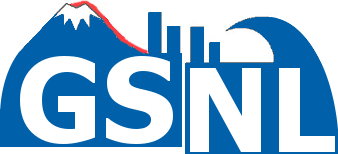The GSNL initiative promotes the GEO Data Sharing and Data Management Principles as a long term
goal for all in situ and satellite EO Data and derived information products contributed to the initiative.
All Supersites and Natural Laboratories should thus implement the following principles:
- Data, metadata and research products should be encoded using widely accepted formats, and openly shared online without cost (or at the cost of reproduction);
All shared data and products should be accompanied by a data license, and referred to by
appropriate Persistent Identifiers to ensure citation and attribution. For all data/products not
already covered by a license, GSNL recommends the Creative Commons “attribution only” (CC-
BY 4.0 license) as preferred method of licensing. - Data, metadata and products available online should be discoverable through the GEOSS Portal
and preferably accessible through local Data Infrastructures; - All shared data, metadata and products should be maintained and made available for at least the
duration of the Supersite, with minimum time delay.
We invite Supersites and Natural Laboratories to adopt a Data Policy drafted according to these guidelines.
Exceptions
GSNL recognizes that commercial obligations, international agreements, national and sub-national
laws, institutional policies or procedures may pose limitations to the immediate implementation of full
and open sharing of data. As a way to promote the Open Data principles in the long term, where such
impediments are demonstrated, partial exceptions can be made to the implementation of the
principles described above.
The exceptions will be negotiated between the Supersite Coordinator and the GSNL governance
during the proposal evaluation process. After proposal approval, any further changes to the Data
Policy will need to be re-negotiated.
Exceptions could take the form of specific conditions posed by the data providers, as in the following two examples, which are meant to sustain local capacity development:
- Open access to a specific dataset (or data category) will be granted after an embargo period of xx year, to allow the data providers to publish the data in the scientific literature.
- As a way to promote capacity building, specific datasets could be openly shared with
international scientists for research involving at least one scientist from the data acquisition
team.


